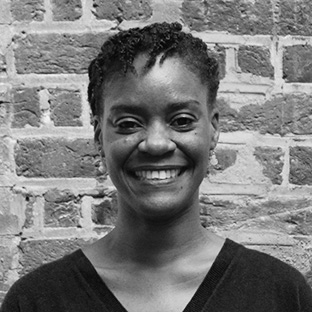Political culture and social and democratic norms can play a big role in shaping our economies. Lessons from European cities show that fostering citizenship and strengthening social networks can help create more inclusive economies.
“Make cuts to public services? Why would we do that?”
- Malmö local government official
(JRF European Cities Tour, June 2016)
In the last blog I wrote about how New York City and Pittsburgh are addressing the challenges associated with inequality and imbalanced growth, through new approaches to supporting in-work progression and developing the role of anchor institutions. In this blog I examine the approaches to local economic development pursued by Helsinki, Malmö and Rotterdam.
Earlier this year the Commission joined the JRF European Cities study tour and reported on the examples we have learned from the cities of Helsinki, Malmö and Rotterdam. Scandinavia (in the case of Helsinki and Malmo) is often held up as the closest we can get to inclusive growth. This makes case studies from the region inspiring for other policy makers, but inherently difficult to apply in practice.
Cultures, norms and expectations of the role of government, business, community organisations and individuals all shape the environment in which central and local policy is played out. Moreover, once we dig under the surface of top-line indicators associated with inequality and poverty, we find that not everyone is able to access opportunities for work in relatively closed labour markets.
From our experience of inclusive growth on tour, Malmö seemed furthest ahead, with Helsinki and Rotterdam trailing in second and third place. Finland was finding how hard it is to do inclusion when growth is low or non-existent; they need to transition to a new model where the former is an integral part of the latter. The Netherlands was looking to the UK with trepidation as its own austerity politics was starting to ramp up. Migration in Sweden was the dominant policy issue of the day, but the question of how public services might be effected was anathema. “Cut public services?” officials exclaimed, “Why would we do that?”
In the city of Helsinki, the overarching strategy to achieve inclusive growth is articulated in the City of Helsinki Strategy programme 2013 -2016. Its key themes include: wellbeing for everyone, especially for the older and immigrant populations, a city which is functional and sustainable, and which also remains a hub of both economic and social activity.
The multi-tiered levels of governance in Finland and more specifically in Helsinki creates a complex situation of overlapping strategies for economic development, innovation, urban development. While strategies are largely ‘top-down’, a key aspect of the strategy is ‘Open Helsinki’ where all city residents are part of the decision-making process, fostering a culture of transparency and accountability in city governance.
In relation to work, quality job and career progression, the city of Helsinki plays an active role in the management of unemployment and two notable projects for young people include:
- Respa, a project is aimed at young people and NEETs under the age of 30. It implements the ‘social guarantee for youth’ via partnership working between the city, employers and civil society organisations.
- Future Desk, another Helsinki city project aimed at providing a careers service portal for city residents under the age of 18 who are not in education or training. “According to the Youth Act, educational institutions are liable to report to the Future Desk the contact information of young people in need for support. Our partners, including child welfare services and youth psychiatric clinics, also direct young people to our services.”
The Comprehensive Plan for Malmo envisions Malmö as a socially, environmentally and economically sustainable city where social sustainability is defined as “securing every citizen’s basic needs such as employment, education, safety and healthcare, but it also includes other aspects such as democratic participation, having a sense of belonging and opportunities for creative expression.” The other strategies include Vision 2015, Oresund Regional Development Strategy and The Commission for a Socially Sustainable Malmo. The city is re-designing itself around its commitment to inclusive citizenship and shared prosperity.
Social networks are critically important to Malmö as a socially sustainable city. There is a reduced emphasis on mandatory policies, but a culture of place-based and people -based development, with an enhanced role for social enterprises in challenging communities, working in tandem with other public agencies and third sector organisations. As Charlotte Alldritt, Director of the Inclusive Growth Commission blogged during the trip, the various private, public and third sector actors in the city are driven in part by a shared moral and ethical value system on “what should be done and how people should be treated.”
Due to the increasing pressures on the city’s welfare budget, as unemployment levels remain high, there is also a growing emphasis on the role of social enterprises and building social networks in Rotterdam. This is coupled with the inherent can-do attitude, and the social enterprise sector has recognised both the importance of making connections and links between projects and people and also working in partnership with the public sector.
The city’s procurement policy is a key policy lever in quality jobs and career progression in which it mandates that businesses dedicate a minimum of five per cent of the value of contracts (over a set threshold) to creating employment opportunities for people currently on social benefits (long-term unemployed), young people on apprenticeships and those supported under the Dutch Sheltered Employment Act. This lever has also been adopted by the private contractors in that each time the city outsources services, an agreement is made with the service suppliers to employ a certain percentage of job seekers as part of the contract.
In Rotterdam, as in Helsinki and Malmö, they saw some of the greatest impact through community-driven ‘street-by-street’ interventions, such as in Delfshaven where there is a vibrant local cooperative association dedicated to empowering local residents and building their capacity to contribute to, and benefit from, economic prosperity in the city. The challenges is now, for these cities and their counterparts in the UK and beyond, how to create this kind of impact at scale. The Commission’s interim report explores how we can start to build a new model for inclusive growth and can be downloaded here.
Please send us your examples of inclusive growth in action from across the world so we can populate our map of inclusive growth activity around the world in the run up to the Final Report (March 2017).
Related articles
-
Commanding a majority in the country, not just the Commons
Charlotte Alldritt
A new kind of coalition between Westminster and our major city leaders is needed to command a majority in the country – not just the Commons, argues Charlotte Alldritt.
-
From Trump to Merkel, the question for global leaders is how can we create inclusive growth?
Charlotte Alldritt
The inclusive growth agenda is truly global, and more urgent than ever in light of recent events. This blog examines the work of the RSA Inclusive Growth Commission from a global perspective.
-
A country that works for everyone? Only with inclusive growth
Stephanie Flanders
Without inclusive growth the country will become more divided outside the EU than it ever was within it, argues Stephanie Flanders.




Be the first to write a comment
Comments
Please login to post a comment or reply
Don't have an account? Click here to register.